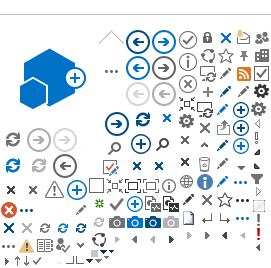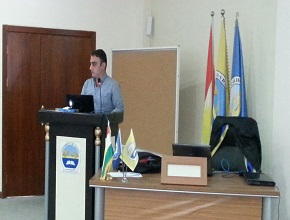

Published Date: Thursday, 17 December 2015, 00:00
On Monday, the 14th of December 2015, Mr. Razwan Najimaldeen, currently PhD student at the University of Algarve/ Portugal, held in cooperation with Dr. Shamil Talal, lecturer at the University of Zakho, a Skype Video Conference on Online Labs for Assisting Engineering and Science Education at the Chemistry Hall of the Faculty of Science with Prof. Gustavo R. Alves, lecturer at the Polytechnic Institute of Porto in Portugal (Instituto Politécnico do Porto- ISEP).
The main idea of this event was introducing online labs technologies (Remote and Virtual labs), in general, and focusing on the Remote Lab (RL) that is represented by the Virtual Instrument Systems in Reality (VISIR). It was awarded by the Global Online Laboratory Consortium (GOLC) and has become one of the most well-known remote labs in 2015. In result, VISIR system may help to creating and distributing laboratories for collaborating in various experiments among universities via the Internet and increasing the access to physical experiments for students, without a significant cost.
In STEM (Science, Technology, Engineering and Math) education fields, laboratories are an important educational resource for students, because it is in laboratories students acquire experimental skills. Nevertheless, there are some constraints in hands-on laboratories, especially in engineering and science fields, such as time limitation, safety, increasing number of students, and limited number of available laboratories, among others. Therefore, setting up a new laboratory at an institute or university may be expensive, in terms of the initial investment and long-term maintenance.
Recently, several online labs (Remote labs) have been set up to support experiments over the Internet, thus increasing the number of available experiments and the number of students able to carry them out. They serve students and teachers, as a complement (or even as a replacement) of hands-on laboratories. The interaction in RLs can be similar to that happening in the hands-on laboratories. Furthermore, RLs provide many function requirements that help to extend them with new experiments and several features such as authentication, user management, and federation.
